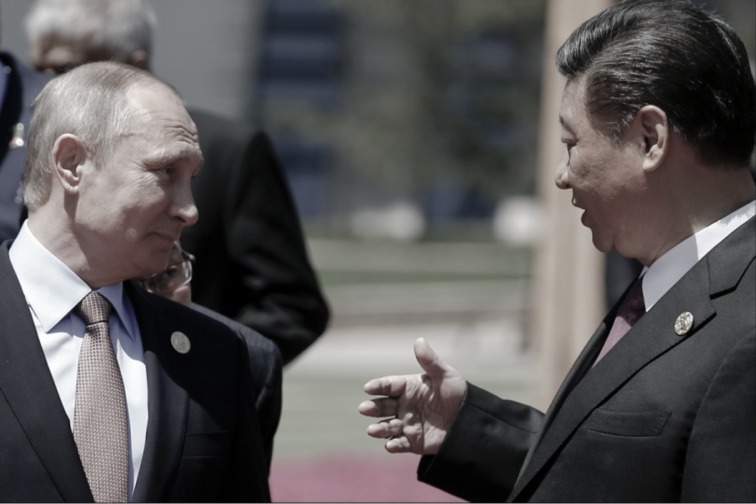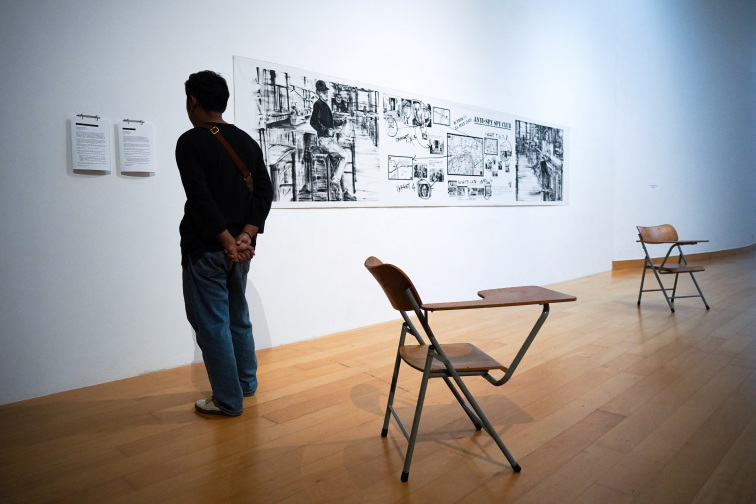The era of the Beidaihe Conference influencing China should come to an end. (Free Images)
[People News] The 2025 Beidaihe Conference has once again drawn external attention. In recent years, the CCP’s top leader has continually centralized and monopolized power, banned “improper discussion of the Central Committee,” and seemingly left no one in the Party daring to criticize “Xi’s Central Committee.” The elder-intervention style of the Beidaihe Conference had also faded away. However, in 2024, the CCP’s political situation suddenly shifted. As the world once again focuses on the power reshuffle in Zhongnanhai, global discussions about China after the CCP’s collapse have intensified — and the era of the Beidaihe Conference influencing China should also come to an end.
Political Signals from the Politburo Meeting
On July 30, the CCP Politburo held a meeting. Xinhua’s report revealed two topics: first, the decision to convene the 4th Plenary Session of the 20th Central Committee in October; second, an analysis of the current economic situation and arrangements for economic work in the second half of the year.
The confirmation of the 4th Plenary Session suggests that the political groundwork for relevant changes is largely complete — only the formalities and official announcement remain. The Politburo meeting before Beidaihe also sent out clear political signals. The report stated that the main agenda of the 4th Plenary Session would be for the Politburo to report its work to the Central Committee and to study and draft recommendations for the “15th Five-Year Plan.”
According to this wording, the 4th Plenary Session does not appear to be preparing for major personnel changes. However, the Politburo report used two paragraphs in advance to outline the “15th Five-Year Plan,” and between the lines, it hinted at the possibility of major political shifts.
The first paragraph briefly analyzed the situation and tasks for the “15th Five-Year Plan” period, sticking mostly to set phrases — mentioning both “socialist modernization” and “Chinese-style modernization.” The coexistence of these two slogans essentially reflects that the current top CCP leadership is in a transitional phase: they must moderately tone down the so-called new slogans of recent years without discarding them entirely; they must signal change while covering it up to avoid making it too abrupt.
The second paragraph showed even clearer signs of signaling. The report placed Marxism-Leninism, Mao Zedong Thought, Deng Xiaoping Theory, the “Three Represents,” and the Scientific Outlook on Development ahead of “Xi Jinping Thought.” It then mentioned the “Five-Sphere Integrated Plan.”
The “Five-Sphere Integrated Plan” was introduced in November 2012 at the CCP’s 18th National Congress by Hu Jintao, the outgoing General Secretary at the time. Hu Jintao, however, was forcibly removed from the venue by Xi Jinping’s order during the 20th National Congress in October 2022. Now, the situation appears reversed.
In the Politburo report, the “Five-Sphere Integrated Plan” was mentioned before the “Four Comprehensives” strategy. The “Four Comprehensives” was proposed by Xi in 2014 and was once touted as the theoretical achievement of the CCP’s fifth-generation leadership. But in recent years, it has not been deliberately promoted and has been replaced by “Xi Jinping Thought” and the “Two Establishes.”
Yet, when looking ahead to the “15th Five-Year Plan,” the Politburo report did not mention the “Two Establishes” at all — strongly suggesting that the current CCP leader has lost power.
It is unlikely that the economy will be the focus of the Beidaihe Meeting
The July 30 Politburo meeting, held just before the Beidaihe Meeting, devoted more coverage to economic work for the second half of the year, with a total of eight sections. The report was still full of stock phrases, indicating that concrete arrangements for economic work in the latter half of the year have already been made. This suggests that the Beidaihe Meeting is unlikely to revisit economic issues, and will more likely focus on finalizing personnel arrangements for the Fourth Plenary Session.
Xinhua News Agency only reported on the July 30 Politburo meeting, without releasing any related video footage, making it impossible to see who attended this expanded Politburo meeting. It is estimated that its scale was similar to that of the expanded Politburo meeting in June, but this time they chose not to disclose it again to the outside world.
A week before the Politburo meeting, on July 23, the CCP Central Committee held a symposium with non-Party members at Zhongnanhai to solicit opinions and suggestions on the current economic situation and economic work for the second half of the year. Xi Jinping, Li Qiang, Wang Huning, Cai Qi, and Ding Xuexiang attended, but Xinhua did not report it immediately. Instead, it deliberately waited until after the Politburo meeting to report both together in order to maintain a unified narrative.
There were still some differences between the reports on these two meetings. On July 23, Xi Jinping, in his speech at the symposium with non-Party members, mentioned the need to break free from “involution” and to “unclog the domestic economic cycle, and promote the dual circulation of domestic and international markets.”
In contrast, the report on the July 30 Politburo meeting only mentioned “promoting the dual circulation of domestic and international markets,” without separately referring to “unclogging the domestic economic cycle” or calling for breaking free from “involution.” Some of the CCP leader’s earlier remarks appear to have been “corrected” by the Politburo meeting.
In the July 23 meeting report, Xi Jinping’s summary of the first half of the year’s work was condensed into a single sentence, merely noting that “more proactive macro policies” were implemented, the economy “maintained steady progress,” and “overall social stability was maintained.” In contrast, the July 30 Politburo meeting report included more details, such as “major economic indicators performed well,” “new quality productive forces have developed positively,” “reform and opening up continue to deepen,” “key risk areas have been effectively and forcefully prevented and resolved,” and “bottom-line guarantees for people’s livelihoods have been further strengthened.” This similarly indicates that the current CCP leader’s speeches are, to some extent, being constrained.
In short, the July 30 Politburo meeting may have appeared unremarkable on the surface, but it was full of political signals.
The Beidaihe Meeting Can’t Save the Party
In Beijing’s current political climate, almost everyone can see the precarious situation. The Chinese Communist Party (CCP) may be in great need of a gathering like the Beidaihe Meeting, once again trying to reach new personnel arrangements through compromises and deals among various factions.
Most people’s thinking is likely still to do everything possible to preserve the Party, preserve the CCP regime, and safeguard the collective interests of the privileged class. However, with frequent omens in the skies, the CCP’s crisis can no longer be salvaged. Even if they rack their brains to make new arrangements, it is clearly to no avail.
Disasters are occurring frequently across the country, with flooding once again striking the areas around Beijing. These are strong warnings from Heaven. Although the CCP Politburo meetings deliberately avoid mentioning such matters, likely in an attempt to downplay their negative impact, such efforts are futile. More and more people are discussing what China will look like after the CCP’s collapse, and it is likely that there are officials within the Party who are also aware of the situation. The Beidaihe Meeting may still result in certain deals, but it will no longer be able to preserve the CCP regime.
On August 6, Xinhua News Agency released the Several Provisions on Rectifying Formalism and Reducing the Burden on the Grassroots. By this time, the Beidaihe Meeting should already have begun. The CCP has been shouting slogans about correcting formalism and bureaucratism for many years, producing countless documents and speeches, but it has never been able to resolve the deep-rooted chronic ailments of its officialdom. The CCP’s bureaucracy is rotten to the core and can only be dismantled; otherwise, there is no way out.
According to Xinhua, these provisions were approved at the CCP Politburo meeting on July 30, 2024, and announced on August 6, 2024. The document only mentions the 20th Third Plenary Session but makes no reference to the current CCP leader. This seems to once again hint that Xi Jinping lost power over a year ago.
Even if the current CCP leader steps down and someone else takes over, it will not resolve the CCP’s internal and external predicaments, nor will it rectify the corruption of its bureaucracy. The Party cannot be saved. If the participants of the Beidaihe Meeting cannot recognize this fact, all their arrangements will be in vain and may even bring about more disasters.
The CCP is the root cause of all of China’s problems. Only when the CCP disintegrates will China have a way forward. The Beidaihe Meeting should withdraw from history; China’s fate will no longer be determined by it. It is time to follow the will of Heaven and the course of history—learn from examples of peaceful dynastic transitions in the past, and bring the Red Dynasty to an early end.











News magazine bootstrap themes!
I like this themes, fast loading and look profesional
Thank you Carlos!
You're welcome!
Please support me with give positive rating!
Yes Sure!